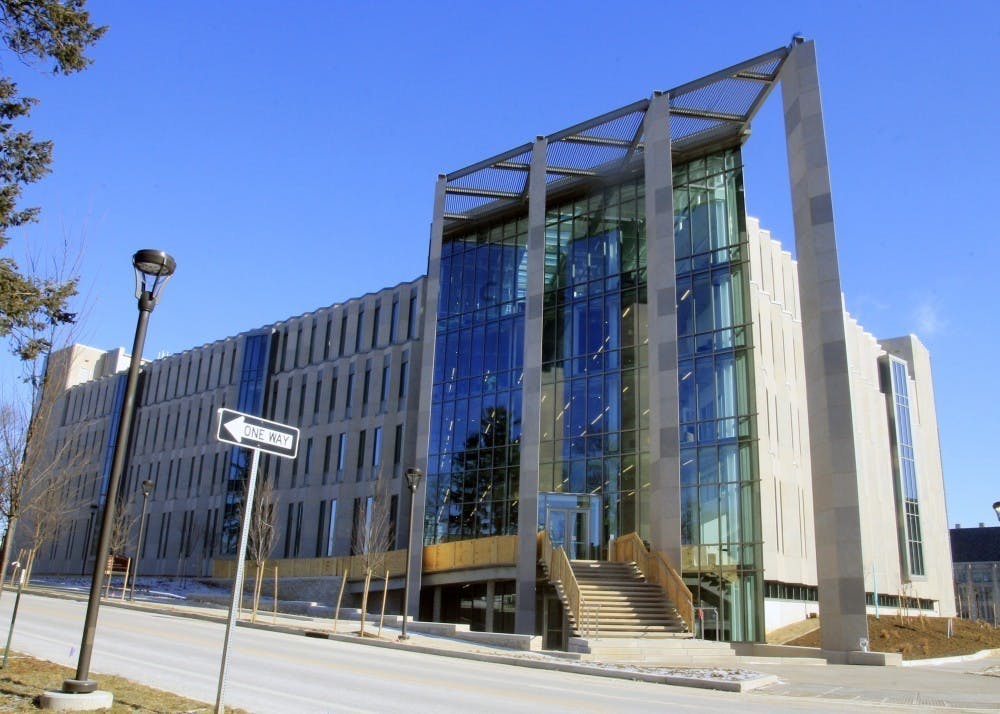The Luddy Center For Artificial intelligence is set to open in August before students arrive for the fall semester.
The 58,000 square foot building cost $35 million, and was paid for with a gift from Indiana University alumni Fred Luddy.
The building was designed by BSA Life Structures, an architecture firm based in Indianapolis, and construction is being done by Weddle Bros Building Group, a local construction company in Bloomington.
The focus of the research at the new facility will be on robotics, health and social media, according to a press release from the university.
“It will highlight the strengths of IU in regards to artificial intelligence research and teaching,” Interim Dean of Luddy Dennis Groth said.
The Luddy School has over 150 faculty members and is among the top 15 universities for programs in human-computer interaction, computer security, programming languages and computational biology, according to their website.
“At least half of our faculty can connect their research to AI in one way or another,” Groth said.
The AI center will have offices, meeting rooms, research space and classrooms that will benefit students and faculty at Luddy, Groth said.
Associate Dean and Professor of Informatics and Cognitive Science Selma Sabanovic is one of the professors whose research focuses on AI. Her research focuses on human-robot interaction and how to apply social and cultural ideas to make robots more beneficial to humans.
“Having the AI center is a great way to bring together all the folks who are thinking about AI from different perspectives,” Sabanovic said.
Sabanovic and Assistant Professor Donald Williamson have recently been working on a project with the Toyota Research Institute that deals with applying robotics and AI to at-home care for the elderly.
The goal of the project is to create a robot that can observe what activities a person enjoys and then make recommendations to that person that will increase their happiness, Sabanovic said.






